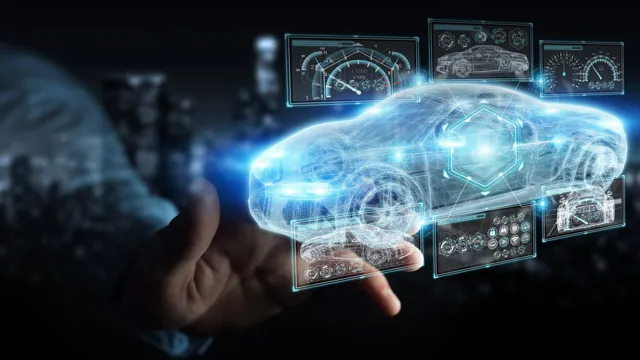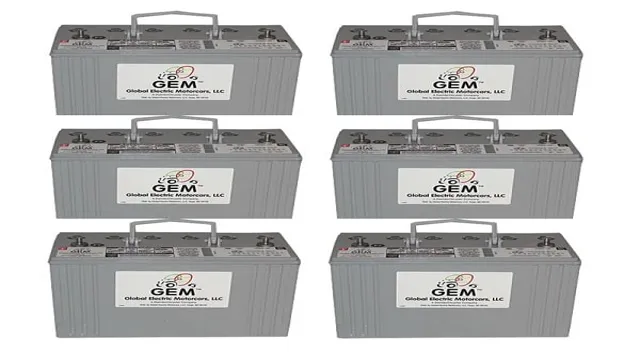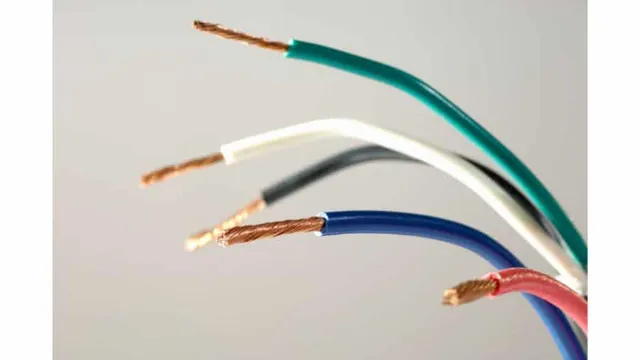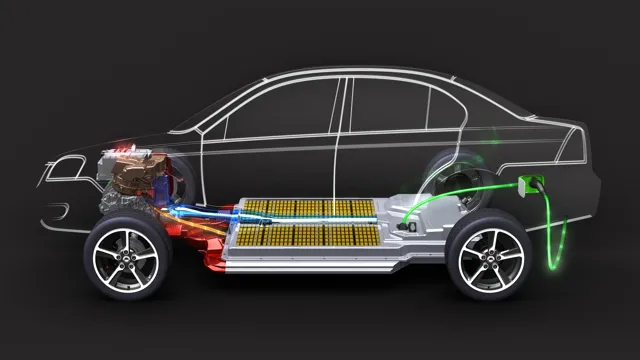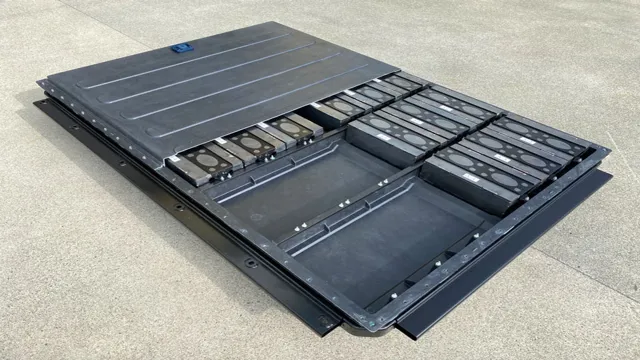Revolutionizing the Road: Unleashing the Power of Electric Car Battery Energy Efficiency
Electric cars are becoming increasingly popular as they offer a cleaner, more sustainable mode of transportation. However, much of their success depends on battery energy efficiency. After all, the battery determines how far the car can go and how long it can run.
To make electric cars a viable choice for most people, it’s necessary to improve battery power and extend the range of the car. That’s where battery energy efficiency comes in. In this blog post, we will delve into the basics of electric car battery energy efficiency, how it works, and why it’s important for the future of electric vehicles.
We will also explore some of the latest advances in battery technology that can help improve efficiency levels. So, let’s get right into it!
Introduction: Why Energy Efficiency Matters
Electric car battery energy efficiency is critical not only for reducing carbon emissions but also for saving money on fuel costs. By utilizing energy-efficient batteries, electric cars can travel longer distances on a single charge while expending less energy, making them more practical for daily use. Additionally, when electric cars require less energy to run, they produce fewer greenhouse gas emissions, making them better for the environment.
As the world continues to prioritize sustainable energy, the demand for more energy-efficient electric car batteries will only increase. With advancements in technology and ongoing research, the future looks bright for more efficient and sustainable transportation. Investing in energy-efficient electric car batteries will undoubtedly benefit both the environment and the economy.
Explaining Electric Car Batteries
As the world becomes increasingly aware of the importance of sustainability, energy efficiency has become a top priority. That’s why it’s crucial to understand how electric car batteries work and how they can help significantly reduce carbon emissions. Electric car batteries are rechargeable power sources that enable a car to drive without burning fossil fuels.
They store energy and release it when the car is in use. This process is much more efficient compared to traditional gasoline-powered engines that tend to lose around 80% of their energy to heat and friction. Instead, electric car batteries convert almost all of their stored energy into motion, making them much more sustainable in the long run.
Additionally, as more and more solar and wind energy is being produced, electric vehicles can take advantage of these clean energy sources and improve their sustainability even further. By understanding how electric car batteries work, we can help promote a more sustainable future for generations to come.
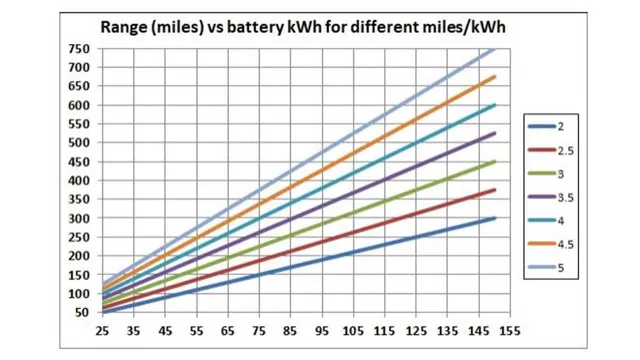
How Energy Efficiency is Measured
Energy efficiency is starting to receive great attention from almost every sector, and this trend is sure to persist given the benefits it offers. Energy efficiency is the ability to use less energy to perform the same function, and hence it results in a reduction in energy costs, greenhouse gas emissions, and even improves health and prosperity. To measure energy efficiency, several metrics are used such as fuel economy, energy intensity, and energy performance indicators.
Energy performance indicators are particularly important when measuring the energy efficiency of buildings. The Energy Star program is an example of a widely accepted energy performance indicator used in the United States to show consumers and businesses how much energy they use compared to the industry standard. Businesses that invest in energy-efficient technologies and practices often benefit from huge returns on investment through energy savings, reduced operating costs, and improved environmental reputation.
Overall, measuring and improving energy efficiency can be a game-changer concerning environmental sustainability, cost savings, and overall social and economic development.
The Benefits of High Energy Efficiency
When it comes to electric cars, one significant benefit of high energy efficiency is a longer battery life. By using energy more effectively, electric car batteries can last longer, reducing the need for frequent replacements and decreasing environmental waste. Additionally, high energy efficiency can greatly decrease the cost of driving an electric car, as less energy is needed to power the vehicle compared to less efficient cars.
This can result in significant savings in the long term, making electric cars a more affordable and sustainable option for drivers. Moreover, by reducing the amount of energy needed to power the vehicle, high energy efficiency can also decrease the overall carbon footprint of the car, making it a more environmentally friendly choice. Overall, investing in high energy efficiency in electric cars brings numerous benefits, such as cost savings, longer battery life, and reduced environmental impact.
Range and Performance
High energy efficiency is one of the greatest benefits of electric vehicles. These vehicles are designed to use energy more efficiently than traditional gas-powered vehicles, which results in longer ranges and better performance. This is possible due to the fact that electric motors are much more efficient at converting stored energy into motion than gasoline engines.
Additionally, regenerative braking systems in electric vehicles allow for the capture of kinetic energy that is normally lost as heat during braking. This energy is then stored in the vehicle’s batteries, which can be used to power the vehicle when needed. Overall, the high energy efficiency of electric vehicles not only leads to longer ranges and better performance but also results in lower energy costs for drivers.
Cost Savings
When it comes to energy efficiency, there are plenty of benefits that people often overlook. Sure, it’s great to save the planet and reduce our carbon footprint, but did you know that high energy efficiency can also save you a lot of money? That’s because when your home or business is more energy efficient, you’re using less energy overall. This means that your utility bills are lower and you spend less money on energy each month.
But that’s not all. High energy efficiency can also help you save money in the long run. For example, if you invest in energy-efficient appliances, you’ll spend less money on maintenance and repairs because these appliances are designed to last longer.
Plus, you’ll be able to take advantage of government incentives and tax breaks that reward people for going green. So, if you’re looking for a way to save money and do your part for the planet, consider investing in high energy efficiency. It’s a win-win for everyone!
Environmental Impact
High energy efficiency is a crucial aspect of reducing environmental impact. When we use energy-efficient appliances and processes, we consume less energy, and this translates to lower emissions and reduced usage of natural resources. However, the benefits of energy efficiency go beyond reducing our carbon footprint.
Energy-efficient devices and processes save us money on energy bills, and this is an advantage that can’t be ignored, especially in modern times where the costs of living have skyrocketed. For instance, using energy-efficient bulbs, switching off appliances when not in use, and implementing efficient insulation methods can save us a significant amount of money in the long run. Therefore, when we prioritize high energy efficiency, we’re not only helping the environment, but we’re also contributing to our financial well-being.
Factors Affecting Energy Efficiency
Electric car battery energy efficiency is affected by several factors. One major factor is the type of battery used in the car. Lithium-ion batteries are currently the most efficient type of battery used in electric vehicles.
Temperature is another factor that can affect battery efficiency. Extreme temperatures, both hot and cold, can reduce the battery’s ability to hold a charge. Additionally, driving behavior and habits can greatly impact energy efficiency.
Quick acceleration and frequent braking can drain the battery faster, while gentle acceleration and anticipation of traffic can help conserve energy. Finally, maintaining the battery’s health is essential for optimal efficiency. Regular maintenance, such as keeping the battery charged and avoiding full discharges, can extend the life and efficiency of the battery.
By considering these factors, electric car owners can optimize their battery’s energy efficiency and improve their driving experience.
Temperature and Climate
When it comes to energy efficiency and temperature, there are a few key factors to keep in mind. First, the temperature of your home or building can significantly impact how much energy you use. If your space is too cold or too warm, you may be running your HVAC system more than necessary, which can lead to higher energy bills.
Additionally, the climate in which you live can also impact energy efficiency. For example, if you live in a hot and humid climate, you may need to invest in more efficient HVAC systems and insulation to keep your space cool and comfortable without using excessive energy. By paying attention to temperature and climate and making necessary upgrades and changes, you can improve energy efficiency and save money on your energy bills over time.
So, next time you’re adjusting the thermostat or considering upgrades, remember the impact that temperature and climate can have on your energy usage and take steps towards improving energy efficiency in your space.
Driving Behavior
Driving behavior plays a significant role in the energy efficiency of a vehicle. Several factors influence energy consumption, including acceleration, deceleration, and braking habits. Rapidly accelerating and hard braking can increase fuel consumption and negatively impact the environment.
Maintaining a steady speed and driving within the speed limit can significantly reduce energy consumption, resulting in lower fuel costs and emissions. Additionally, driving with proper tire pressure, avoiding unnecessary idling, and prioritizing maintenance can help improve energy efficiency. In summary, conscious driving, and being aware of the factors that affect energy efficiency can save you money while promoting a cleaner environment.
Improving Battery Energy Efficiency
Electric car battery energy efficiency is a crucial factor for the wide adoption of these vehicles. Improving the energy efficiency of batteries can increase the range of electric vehicles and reduce the number of charging stops required. There are several ways manufacturers can improve battery energy efficiency, including using more energy-dense materials, optimizing the battery management system, and reducing the weight of the battery.
One of the most promising solutions is the integration of solid-state batteries, which can offer higher energy densities and faster charging times than conventional lithium-ion batteries. With advancements in technology, we can expect to see more efficient electric car batteries in the near future, which can make electric vehicles more accessible to a wider range of drivers.
Advanced Manufacturing Techniques
As technology continues to advance, innovative manufacturing techniques are being developed to make batteries more efficient. Advanced manufacturing techniques like nanotechnology, 3D printing, and thin-film deposition are being used to improve battery energy efficiency. With nanotechnology, particles are manipulated at a molecular level, creating batteries that are thinner, smaller, and lighter.
3D printing is also being utilized, enabling batteries to be printed in any desired shape or form, opening up opportunities for designers to incorporate batteries into products in new ways. Additionally, thin-film deposition is being implemented to create coatings on battery cells, reducing internal resistance and increasing energy density. This coating can also protect the battery from degradation and damage.
These advancements in manufacturing will lead to more efficient batteries, allowing for longer lasting and sustainable energy storage.
Innovative Battery Chemistry
Battery energy efficiency is a critical aspect of the innovation of batteries that researchers are working to improve continuously. The development of new and advanced batteries with improved efficiency and sustainability has been the focus of many leading businesses across the globe. With a focus on innovative battery chemistry, researchers are trying to improve the capacity, performance, and lifetime of batteries and reduce the environmental impact of battery production and disposal.
One example is the use of solid-state electrolytes, which could enhance energy density, safety, and lifetime while reducing the risk of fire and explosion in batteries. Another promising development is the use of metal-air batteries that can provide more energy than lithium-ion batteries. Innovations like these spotlight a promising future for the battery industry, and these efforts will undoubtedly benefit industries such as consumer electronics, transportation, and renewable energy.
Efficient Design and Engineering
Improving battery energy efficiency is a crucial aspect of designing and engineering efficient battery-powered products. One of the most effective ways to achieve this is by optimizing the power management system of the device. By reducing energy losses during power transfer and optimizing the charging and discharging cycles, battery energy efficiency can be improved significantly.
Another method involves using high-capacity lithium-ion batteries, which have a higher energy density and are more efficient. Additionally, the use of smart power management techniques like Battery Management Systems (BMS) and Power Electronics can help to improve battery performance and extend its lifespan. These methods not only help to reduce energy consumption but can also enhance the overall performance and user experience of the device.
So, if you’re planning on designing a new battery-powered product, it’s critical to consider techniques that can help improve battery energy efficiency for long-lasting and effective use.
Conclusion: The Future of Energy-Efficient Electric Cars
In conclusion, electric car battery energy efficiency is the name of the game when it comes to the electric vehicle revolution. The efficiency of a battery determines not only its ability to power a vehicle for a longer period of time but also its overall environmental impact. Much like a well-designed game, the goal of the electric car industry is to create the ultimate battery that is both energy-efficient and sustainable.
With continuous advancements in technology and a growing market demand for sustainable transportation, it’s safe to say that the future is looking bright (and green) for electric car battery energy efficiency.”
FAQs
How does an electric car battery affect energy efficiency?
The electric car battery plays a critical role in the energy efficiency of the vehicle. A high-quality battery will be able to store and discharge energy more efficiently, allowing the car to drive further on a single charge.
What factors influence the overall energy efficiency of an electric car?
There are several factors that can impact the energy efficiency of an electric car, including the size and type of the battery, the weight of the vehicle, the driving conditions, and the driving style.
Can the energy efficiency of an electric car be improved over time?
Yes, there are several ways to improve the energy efficiency of an electric car over time. This can include upgrading to a higher capacity battery, improving the aerodynamics of the vehicle, and implementing more efficient charging strategies.
How does the energy efficiency of an electric car compare to that of a traditional gasoline-powered vehicle?
Generally, electric cars are more energy-efficient than traditional gasoline-powered vehicles. This is because they convert more of the stored energy into motion, while gasoline-powered cars waste a significant amount of energy through heat and other forms of energy loss.
